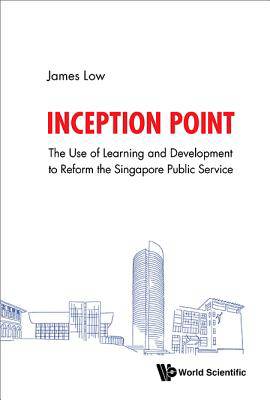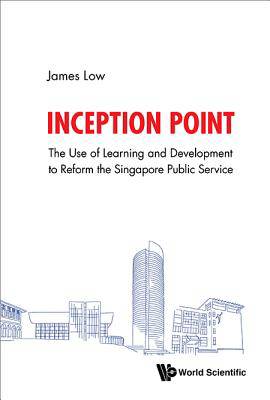
- Afhalen na 1 uur in een winkel met voorraad
- Gratis thuislevering in België vanaf € 30
- Ruim aanbod met 7 miljoen producten
- Afhalen na 1 uur in een winkel met voorraad
- Gratis thuislevering in België vanaf € 30
- Ruim aanbod met 7 miljoen producten
Zoeken
Inception Point: The Use of Learning and Development to Reform the Singapore Public Service
James Low
Hardcover | Engels
€ 160,45
+ 320 punten
Omschrijving
Inception Point: The Use of Learning and Development to Reform the Singapore Public Service fills a gap in current literature on Singapore's modernisation. While the political leadership of the late Prime Minister Lee Kuan Yew and his People's Action Party (PAP) government were key to Singapore's modernisation, the role of policy implementation was one shouldered by the Singapore Public Service, a story thus far neglected in literature.Inception Point argues that the Singapore Public Service used executive development and training to introduce reforms across the bureaucracy. In so doing, the bureaucracy constantly adjusted itself to help modernise Singapore. In the 40 years between decolonisation in 1959 and 2001, when the training arm of the bureaucracy became a statutory board, training had been used firstly, to socialise the bureaucracy away from its colonial-era organisational culture to prepare it for the tasks of nation-building. Subsequently, civil servants were mobilised into an 'economic general staff' through training and development, to lead the Singapore developmental state in the 1970s and the 1980s. The Public Service for the 21st Century (PS21) reforms in the 1990s was the epitome in harnessing development and training for reforms across the bureaucracy.
Specificaties
Betrokkenen
- Auteur(s):
- Uitgeverij:
Inhoud
- Aantal bladzijden:
- 292
- Taal:
- Engels
Eigenschappen
- Productcode (EAN):
- 9789813235069
- Verschijningsdatum:
- 3/05/2018
- Uitvoering:
- Hardcover
- Formaat:
- Genaaid
- Afmetingen:
- 152 mm x 229 mm
- Gewicht:
- 557 g

Alleen bij Standaard Boekhandel
+ 320 punten op je klantenkaart van Standaard Boekhandel
Beoordelingen
We publiceren alleen reviews die voldoen aan de voorwaarden voor reviews. Bekijk onze voorwaarden voor reviews.











